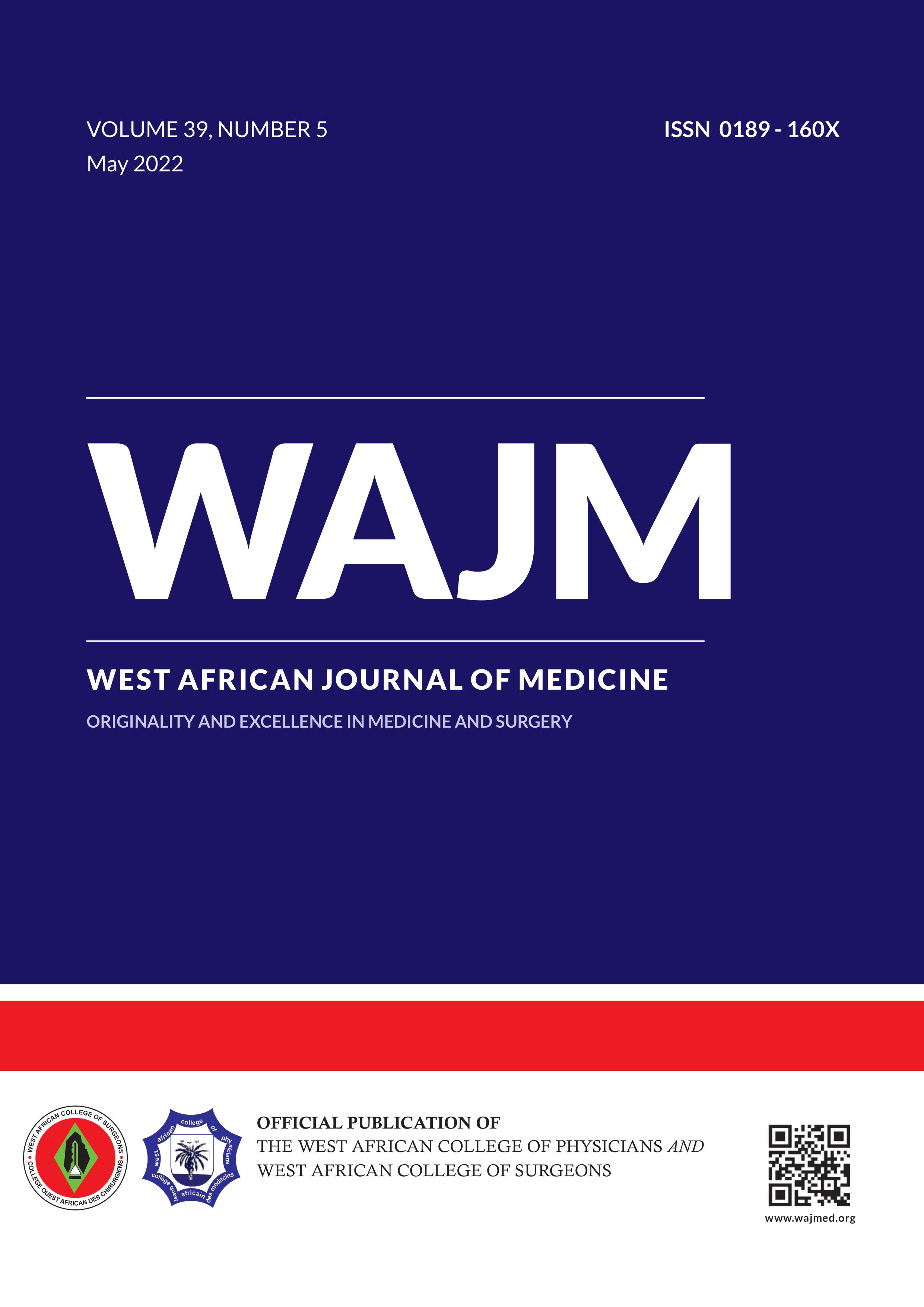ORIGINAL: Prevalence and Correlates of Suicidal Ideation among Medical Students in a Tertiary Institution in Southern Nigeria
West Afr J Med. 2022 May; 39(5): 529-537
Keywords:
Medical students; Nigeria; Suicidal ideation.Abstract
Introduction: Medical students have an increased risk of suicidal ideation compared to similar age groups within the general population. Suicidal ideation is a significant predictor of suicidal attempt, therefore, identifying and addressing factors associated with suicidal ideation among medical students may potentially reduce their overall rates of suicide.
Aim: To determine the prevalence and correlates of suicidal ideation among medical students in a Nigerian medical school.
Methodology: This was a cross-sectional study that determined the prevalence and correlates of suicidal ideation among clinical students. Beck's suicidal ideation questionnaire, Beck's depression inventory and World Health Organisation Alcohol Smoking and Substance Involvement Screening Test (ASSIST) were used to assess for suicidal ideation, depression and lifetime substance use respectively. P value of <0.05 was taken as significant.
Methodology: This was a cross-sectional study that determined the prevalence and correlates of suicidal ideation among clinical students. Beck's suicidal ideation questionnaire, Beck's depression inventory and World Health Organisation Alcohol Smoking and Substance Involvement Screening Test (ASSIST) were used to assess for suicidal ideation, depression and lifetime substance use respectively. P value of <0.05 was taken as significant.
Results: One hundred and twenty-one students participated in the study. Mean age of the participants was 21.78±3.54 years. The prevalence of suicidal ideation was 12.4%. Factors associated with suicidal ideation were intimate relationship problems (p=0.03); being managed for a chronic medical condition (p=0.02); higher depression scores (p<0.001); and having fewer maternal siblings (p=0.02). Forty-five (37.2%) students had a life time use of psychoactive substances which was mainly alcohol.
Conclusion: Suicidal ideation was relatively high among the medical students. Medical schools should create programmes that will cater for the emotional and psychological wellbeing of their students to reduce their suicidal risk.
Authors B E A Uteh 1, O A Adejumo 1, R E Ogbolu 2, J O Omoaregba 3, A A Akinnuoye 4

